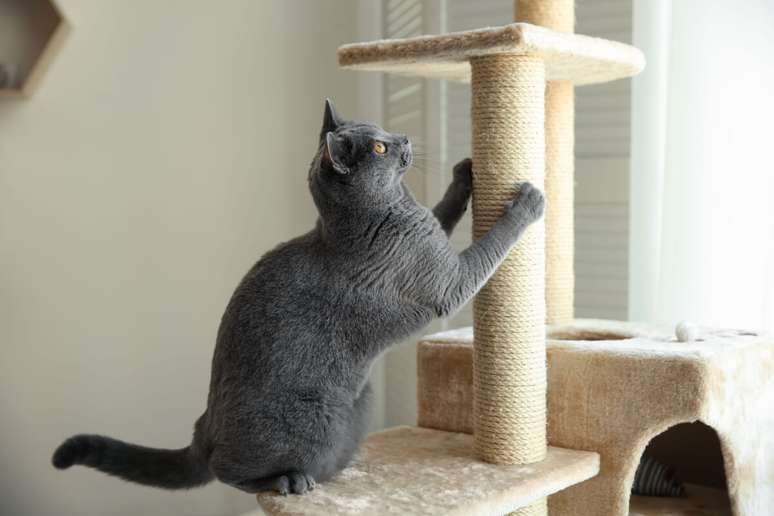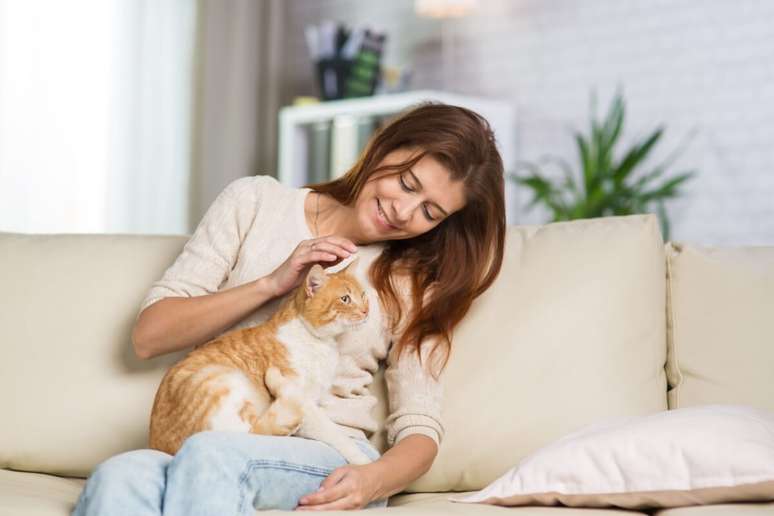Find out how to ensure the health and well-being of your cat at this stage of life
It is natural for cats, like all living beings, to age: it is part of the cycle of life. Generally, this animal is considered elderly from the age of seven. During this phase, it undergoes many physical and behavioral changes. Because of these transformations, it is essential to adopt specific care to ensure the health and well-being of the feline.
So, below, check out 6 important cares for senior cats!
1. Proper nutrition
It is important to take care of your cat’s diet at all stages of its life. However, it is necessary to pay attention to the animal’s diet when it reaches the senior stage, as nutritional needs generally change.
Formulated feed for cats Older adults generally have fewer calories, more fiber, and nutrients like omega-3s to promote healthy joints and immune systems. A balanced diet also helps prevent obesity, digestive problems, and other common diseases in old age.
2. Regular veterinary care
As your cat ages, you should visit your veterinarian more frequently to monitor your feline’s health, especially if he or she has a pre-existing condition. Additionally, routine checkups and exams help detect diabetes, kidney disease, and hypertension early, allowing for more effective treatment and improving your pet’s quality of life.
3. Weight monitoring
Due to a slower metabolism and less physical activity, older cats are more likely to gain weight and become obese. However, this condition can worsen health problems such as arthritis and heart disease. Here’s why, talk to the vet to adapt the animal’s diet and encourage it to stay active with light games.

4. Accessibility and convenience
Some older cats may have limited mobility due to joint pain. Therefore, they may no longer be able to climb high places as they used to. Therefore, try to adapt the environment to facilitate your feline’s movements. Provide ramps or steps for furniture, comfortable beds that are easy to access, and litter boxes with low edges.
5. Mental and physical stimulation
Although they are less active than younger cats, senior cats still need mental and physical stimulation. stay healthyInteractive toys, scratching posts, and light play sessions help keep the brain working and joints moving, helping to prevent cognitive and physical decline.
6. Pay attention to behavior and mood
Some behavioral changes and your cat’s mood, such as changes in appetite, litter box use, sociability, and activity, may indicate health problems. Therefore, once identified, take your pet to the vet for an evaluation.
Source: Terra
Ben Stock is a lifestyle journalist and author at Gossipify. He writes about topics such as health, wellness, travel, food and home decor. He provides practical advice and inspiration to improve well-being, keeps readers up to date with latest lifestyle news and trends, known for his engaging writing style, in-depth analysis and unique perspectives.









